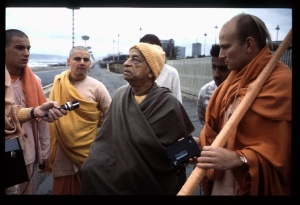CC Madhya 13.23: Difference between revisions
No edit summary |
(Vanibot #0054 edit - transform synonyms into clickable links, which search similar occurrences) |
||
| Line 17: | Line 17: | ||
<div class="synonyms"> | <div class="synonyms"> | ||
''pañca-daśa dina'' | ''[//vanipedia.org/wiki/Special:VaniSearch?s=pañca&tab=syno_o&ds=1 pañca]-[//vanipedia.org/wiki/Special:VaniSearch?s=daśa&tab=syno_o&ds=1 daśa] [//vanipedia.org/wiki/Special:VaniSearch?s=dina&tab=syno_o&ds=1 dina]'' — fifteen days; ''[//vanipedia.org/wiki/Special:VaniSearch?s=īśvara&tab=syno_o&ds=1 īśvara]'' — the Lord; ''[//vanipedia.org/wiki/Special:VaniSearch?s=mahā&tab=syno_o&ds=1 mahā]-[//vanipedia.org/wiki/Special:VaniSearch?s=lakṣmī&tab=syno_o&ds=1 lakṣmī]'' — ''the supreme goddess of fortune; ''[//vanipedia.org/wiki/Special:VaniSearch?s=lañā&tab=syno_o&ds=1 lañā]'' — ''with; ''[//vanipedia.org/wiki/Special:VaniSearch?s=tāṅra&tab=syno_o&ds=1 tāṅra] [//vanipedia.org/wiki/Special:VaniSearch?s=saṅge&tab=syno_o&ds=1 saṅge]'' — in her company; ''[//vanipedia.org/wiki/Special:VaniSearch?s=krīḍā&tab=syno_o&ds=1 krīḍā]'' — enjoyment; ''[//vanipedia.org/wiki/Special:VaniSearch?s=kaila&tab=syno_o&ds=1 kaila]'' — performed; ''[//vanipedia.org/wiki/Special:VaniSearch?s=nibhṛte&tab=syno_o&ds=1 nibhṛte]'' — in a solitary place; ''[//vanipedia.org/wiki/Special:VaniSearch?s=vasiyā&tab=syno_o&ds=1 vasiyā]'' — sitting. | ||
</div> | </div> | ||
Latest revision as of 21:40, 19 February 2024

His Divine Grace
A.C. Bhaktivedanta Swami Prabhupada
A.C. Bhaktivedanta Swami Prabhupada
TEXT 23
- pañca-daśa dina īśvara mahā-lakṣmī lañā
- tāṅra saṅge krīḍā kaila nibhṛte vasiyā
SYNONYMS
pañca-daśa dina — fifteen days; īśvara — the Lord; mahā-lakṣmī — the supreme goddess of fortune; lañā — with; tāṅra saṅge — in her company; krīḍā — enjoyment; kaila — performed; nibhṛte — in a solitary place; vasiyā — sitting.
TRANSLATION
For fifteen days the Lord had remained in a secluded place with the supreme goddess of fortune and had performed His pastimes with her.
PURPORT
The fifteen-day period of anavasara is also called nibhṛta, in honor of the solitary place where the supreme goddess of fortune lives. After living there a fortnight, Lord Jagannātha took permission from the goddess of fortune to leave.